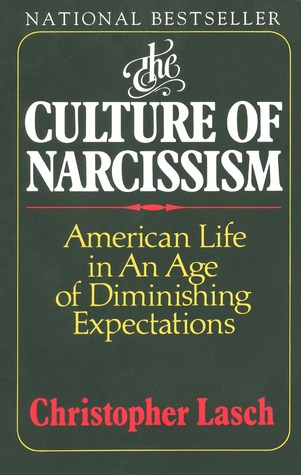More on this book
Community
Kindle Notes & Highlights
Class consciousness declines; people perceive their social position as a reflection of their own abilities and blame themselves for the injustices inflicted on them. Politics degenerates into a struggle not for social change but for self-realization.
In the last twenty-five years, the borderline patient, who confronts the psychiatrist not with well-defined symptoms but with diffuse dissatisfactions, has become increasingly common. He does not suffer from debilitating fixations or phobias or from the conversion of repressed sexual energy into nervous ailments; instead he complains “of vague, diffuse dissatisfactions with life” and feels his “amorphous existence to be futile and purposeless.” He describes “subtly experienced yet pervasive feelings of emptiness and depression,” “violent oscillations of self-esteem,” and “a general inability
...more
Contemporary man, tortured on the other hand by self-consciousness, turns to new cults and therapies not to free himself from obsessions but to find meaning and purpose in life, to find something to live for, precisely to embrace an obsession, if only the passion maîtresse of therapy itself. He would willingly exchange his self-consciousness for oblivion and his freedom to create new roles for some form of external dictation, the more arbitrary the better.
Men used to rail against the irony of fate; now they prefer it to the irony of unceasing self-consciousness. Whereas earlier ages sought to substitute reason for arbitrary dictation both from without and within, the twentieth century finds reason, in the debased contemporary form of ironic self-consciousness, a harsh master; it seeks to revive earlier forms of enslavement. The prison life of the past looks in our own time like liberation itself.
One of every eight seventeen-year-olds believed that the president does not have to obey the law, and one of every two students at both ages believed that the president appoints members of Congress. Half the thirteen-year-olds thought that the law forbids anyone to start a new political party. Hardly any of the students in either group could explain what steps the Constitution entitles Congress to take in order to stop a president from fighting a war without congressional approval. If an educated electorate is the best defense against arbitrary government, the survival of political freedom
...more
The model citizen of early republican theory knew what his rights were and defended them from infringement by his fellow citizens and by the state. He could not be fooled by demagogues or overawed by the learned obfuscations of professional wise men.
At first glance, a society based on mass consumption appears to encourage self-indulgence in its most blatant forms. Strictly considered, however, modern advertising seeks to promote not so much self-indulgence as self-doubt. It seeks to create needs, not to fulfill them; to generate new anxieties instead of allaying old ones.
Neither the regulatory nor the welfare policies of the state rest on “an implicable hatred of private business and free enterprise,” as Mises claims. On the contrary, regulation controls competition and stabilizes the market, while the welfare system socializes the “human costs” of capitalist production—rising unemployment, inadequate wage scales, inadequate insurance against sickness and old age—and helps to forestall more radical solutions.
The same historical development that turned the citizen into a client transformed the worker from a producer into a consumer. Thus the medical and psychiatric assault on the family as a technologically backward sector went hand in hand with the advertising industry’s drive to convince people that store-bought goods are superior to homemade goods.


